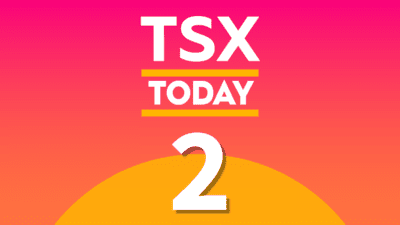Over the course of my career, I’ve been burned by a particularly treacherous dynamic in the Canadian stock market. Here’s how it works, and how to make sure you don’t suffer my same fate.
A lot of stocks on the Toronto Stock Exchange pay a dividend. According to Capital IQ, 70% of the 1,548 companies listed on the TSX paid a dividend at some point over the past 12 months. This compares to 59% of the listings on the New York Stock Exchange. Unfortunately, only a minority of these companies actually should be paying a dividend.
You see, we Canadians liked income trusts. Remember them? Those things that didn’t have to pay any tax if they distributed all of their “earnings,” and that almost did away with the traditional corporate structure in this country? They were outlawed on Oct. 31, 2006, but their legacy more than lives on.
Supporting this legacy are Canada’s financial institutions. These institutions made piles and piles of money selling income trusts to investors, both institutional and retail. It got to the point that seemingly every new public offering that was brought to market would be structured as an income trust. Even some of this country’s biggest corporations had begun to make the conversion.
Flawed Logic
Some of these deals were legit. Many were not. And even though the income trust structure is dead, Canadian companies, particularly the relatively young ones, still believe that if they are going to have success attracting us as investors, they have to pay a monster distribution. This dynamic can not only damage Canadian investors, but also the companies following this flawed logic. Rather than retaining cash and reinvesting in their business, they are paying it out, then contacting their friendly neighborhood investment banker to help them tap the equity market or take out a loan to fund their capital requirements – both of which are revenue generators for the banker.
Look no further than Poseidon Concepts (TSX:PSN). Poseidon has been publicly traded for just over a year and offers a system that helps oil and gas exploration and production sites manage water more efficiently. Although the company has experienced impressive growth, a decision Poseidon made shortly into its public life may end up ruining it.
What Were They Thinking?
After being publicly traded for about a month, on Dec. 15, 2011 the company made the announcement that it would begin paying a monthly dividend. Slightly more than a year later, on Dec. 27, 2012, the company announced it was suspending that dividend. During this span, the stock price has moved from about $12 to under $1.50, and the company paid shareholders more than $64 million in cash.
With activity slowing in several energy-producing regions of North America, Poseidon had to write down $9.5 million of accounts receivable in the last reported quarter, and has warned that more writedowns could follow. Because of the obligation they brought upon themselves (no doubt with a banker at least whispering in their ear) to pay out a monthly dividend, the company was presumably forced into stretching for any business it could get, even if it meant doing business with clients who effectively couldn’t pay them.
The Winner
While shareholders have taken a bath on Poseidon, guess who’s happy? The bankers. A consortium of bankers underwrote a $75 million equity issue for Poseidon very early in 2012, no doubt to take advantage of the buzz surrounding the company’s recently initiated dividend. Even though the cash from the issuance was essentially used to pay Poseidon’s dividend, the bankers earned a tidy fee of nearly $4 million for their trouble. In addition, Poseidon’s $100 million credit facility, which had $55 million drawn on it at the end of the last quarter, was extended part way through the year. With assets of more than $200 million at last report, it appears likely that Poseidon will pay back this debt, with interest, regardless of the company’s ultimate fate.
ABS
To overcome this market dynamic, Always Be Skeptical. Your interests rarely align with the interests of others in the financial industry. One look at Poseidon’s cash flow statement would have given you all the information necessary to steer clear of this train wreck. This company was never close to generating the cash required to pay its dividend.
For many investors, the mere presence of a dividend gives off an aura of stability. In the Canadian market, however, nothing could be further from the truth. Beware the bankers!
Follow us on Twitter for the latest in Foolish investing.
Fool contributor Iain Butler does not own shares in any of the companies mentioned in this post. The Motley Fool has no positions in the stocks mentioned above.







